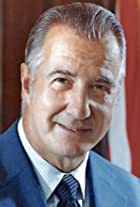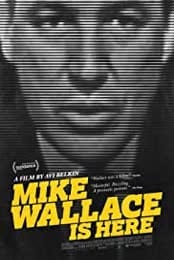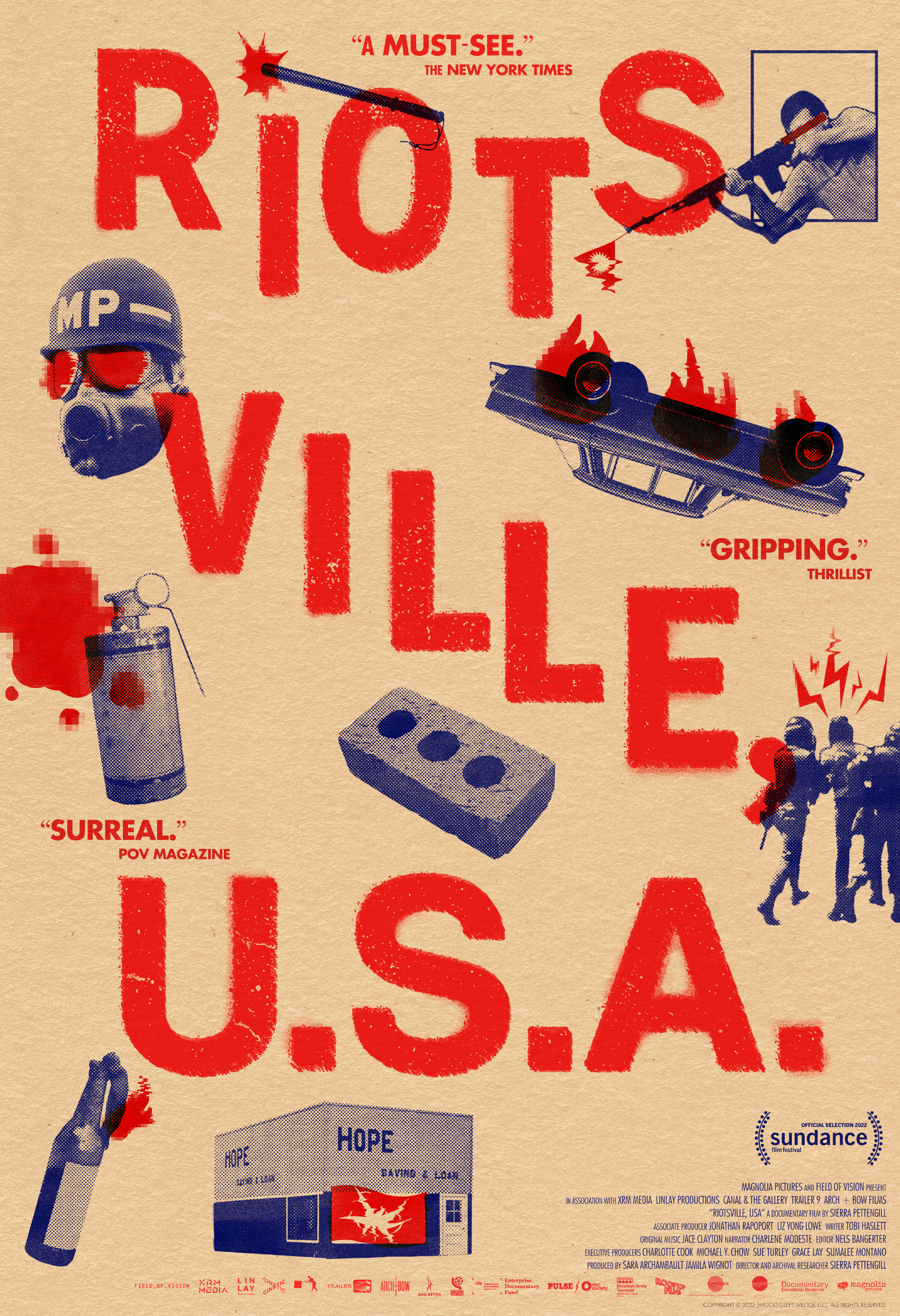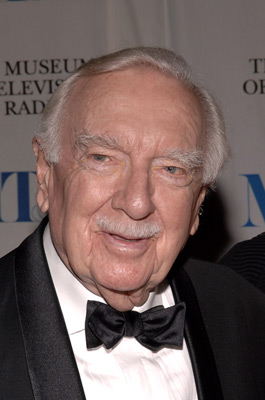
Spiro Agnew
Birthdate – November 9, 1918 (106 Years Old)
Birthplace – Baltimore, Maryland, USA
Spiro Agnew was a Greek-American politician from Baltimore, Maryland. He served as the Governor of Maryland from 1967 to 1969. He became a national celebrity for his “law and order” rhetoric in response to nationwide civil unrest. He was chosen by Richard Nixon as his running mate for the presidential election of 1968. Agnew served as the 39th Vice President of the United States from 1969 to 1973, easily winning re-election in 1972. He was forced to resign after a criminal investigation in Maryland uncovered evidence of Agnew’s involvement in criminal conspiracy, bribery, extortion and tax fraud. Agnew eventually pleaded no contest to a single felony charge of tax evasion, and the other charges were dropped. He spend the rest of his life in retirement. A number of historians have cited Agnew as one of the founders of the “New Right” movement, which went on to dominate the Republican Party in the 1980s.In 1918, Agnew was born in Baltimore. His father was restaurant owner Theodore Agnew (born Theophrastos Anagnostopoulos ). Theodore was from the small town of Gargalianoi in Messenia, Greece, located about 18 km (11 mi) north of the historic town of Pylos. His family were olive growers , but were impoverished during a financial crisis in the 1890s. Theodore emigrated to the United States in 1897., and had managed to open his own restaurant by 1908. Agnew’s mother was Margaret Marian Akers, a retired government worker from Virginia. She was the widow of a close friend of Theodore who had died in 1917. She had a young child from her previous marriage.During the 1920s, the Agnew family was relatively affluent, and Theodore acquired a larger restaurant. The restaurant closed shortly following the Wall Street Crash of 1929, due to financial problems. In 1931, the Agnew family’s savings were wiped out in a bank failure. The family was forced to sell their private house and moved to a small apartment. Theodore sold fruit and vegetables from a roadside stall. Spiro helped financially support his family by taking part-time jobs, such as delivering groceries and distributing leaflets.In 1937, Agnew started his college education at Johns Hopkins University. He pursued studies in chemistry, but found academic life to be stressful. He dropped out of his chemistry studies in 1939, then decided to pursue legal studies instead. He enrolled at the University of Baltimore School of Law, taking night classes. To financially support himself during his college years, he started working as an insurance clerk for the Maryland Casualty Company. Agnew pursued a romantic relationship with Elinor Isabel “Judy” Judefind, his co-worker at the insurance company. They were married in May 1942. By coincidence, her father was a chemist.Agnew was drafted into the United States Army in December 1941. He completed his basic training at Camp Croft in South Carolina, which he credited with breaking him out of his previously sheltered life. He was sent for further training to the Officer Candidate School at Fort Knox, Kentucky. He was commissioned as a second lieutenant in May, 1942, a few days before his wedding.From May 1942 to March 1944, Agnew served in various administrative positions at both Fort Knox and Fort Campbell. In March 1944, Agnew was transferred to England. His transfer was part of the build-up of forces for the upcoming Normandy landings (June, 1944). Agnew spend several months on standby in Birmingham, West Midlands, before being assigned to a combat role. He was assigned as a replacement officer for the 54th Armored Infantry Battalion in France. His unit saw action at the Battle of the Bulge (December, 1944-January 1945). Agnew took part in the Siege of Bastogne (December, 1944), defending the Belgian city against a German attempt to recapture it.In the early months of 1945, Agnew and his unit fought their way into Germany. By the end of the war in Europe, the unit had managed to capture the ski town of Garmisch-Partenkirchen in Bavaria. The town had previously hosted the 1936 Winter Olympic Games. Agnew was awarded the Combat Infantryman Badge and the Bronze Star for his combat service. He was discharged from the Army in November 1945.By the winter of 1945, Agnew resumed his legal studies. He was also hired as a law clerk by the Baltimore-based law firm of Smith and Barrett. His boss Lester Barrett noted Agnew’s political ambitions, and advised him to join the Republican Party. Barrett had noted that the Democratic Party in Baltimore had numerous young and ambitious political hopefuls, while the Republican Party was suffering from a scarcity of competent recruits. According to Barrett, it would be easier for Agnew to stand out in the Party that offered less competition for elected positions. Agnew took the advise, and became a registered Republican in 1947.In 1947, Agnew graduated with a Bachelor of Laws. After passing the bar examination in Maryland, he opened his own legal office in Baltimore. His business soon failed, but Agnew found work as an insurance investigator. In 1948, he was hired as a store detective for the supermarket chain Schreiber’s. In 1951, Agnew was briefly recalled for Army service due to the outbreak of the Korean War. He then resumed working for Schreiber’s. He resigned in 1952, opening another legal office. He specialized in labor law.By 1955, Agnew was prosperous enough to move with his family to the suburb of Loch Raven, Baltimore. He became the president of the local school district’s Parent-Teacher Association. He also joined the service club Kiwanis, whose members volunteered for community service. His biographers have noted that Agnew had become “an almost compulsive conformist”, and already professed a love for “law and order”.In 1956, Agnew unsuccessfully sought nomination as a Republican candidate for the Baltimore County Council. He campaigned vigorously for other Republican candidates, and the Party gained a majority on the council seats at the election. To reward his loyalty to the Party, party officials appointed Agnew for a one-year term to the county Zoning Board of Appeals. The job came with a respectable salary and some political prestige. In 1958, Agnew was reappointed to the Board for a full three-year term. He soon became the Board’s chairman.In 1960, Agnew unsuccessfully sought election to the county circuit court. He finished last among the five candidates of the election, but his campaign made him a target for the Democratic Party which regained control of the county council in the election. The new council quickly removed Agnew from his position at the Zoning Appeals Board, in what was seen as an unfair act of retaliation.In 1962, Agnew was an unsuccessful candidate for nomination to a Congress seat. Party officials noted that Agnew had loyal followers, and encouraged him to seek election as the county’s chief executive officer. All holders of this position were members of the Democratic Party since 1895. But in the 1962 elections, there was a feud between rival factions of the local Democratic Party. The Democratic candidate chosen was the elderly Michael Birmingham, who was seen as out of touch with the public’s wishes. Agnew chose to run as a reformist candidate, campaigning for an anti-discrimination bill which would require public amenities such as parks, bars and restaurants be open to all races. Agnew easily won the election, surpassing his supposedly racist rival by over 18, 000 votes. Agnew became the highest-ranking Republican in Maryland.Agnew spend 4 years as a county executive. He succeeded in having his anti-discrimination bill pass as official legislation in the county. His administration build new schools, increases the teachers’ salaries, reorganized the police department, and improved the water and sewer system. While he was seen as a moderately progressive administrator, Agnew’s “law and order” rhetoric led him to denounce all demonstrations in the area, regardless of their cause. More controversial was Agnew’s newfound reputation for cronyism. He bypassed the normal bidding procedures to appoint political allies in lucrative positions as the county’s insurance brokers of record.In the 1964 presidential elections, Agnew was a vocal critic of the Republican front-runner Barry Goldwater. In his view, Goldwater’s extremist views would deprive the Republicans of any chance of victory. He was proven correct, as Goldwater lost the election and only won about 38.5% of the popular vote.In the elections of 1966, Agnew decided to seek nomination for the position of the Governor of Maryland. He easily won the Republican primary, as he was the highest-profile candidate for the nomination. The Democratic candidate for this year was the segregationist George P. Mahoney. Liberal Democrats refused to vote for Mahoney, and flocked to support Agnew. Agnew easily won the election, gaining 49.5 percent of the popular vote. He had campaigned as the anti-Ku Klux Klan candidate.Shortly after the election of 1966, allegations of corruption surfaced against Agnew. He had reportedly been offered three different bribes by the slot-machine industry in order to prevent him from vetoing legislation favorable to the industry. He had kept silent about the matter, though he had apparently declined to take the bribes. Agnew was also found to have partial ownership in a business venture, and his partners were businessmen who had ongoing business deals with Agnew’s county administration. In both cases, Agnew publicly denied that he had broken the law.Agnew’s agenda as a governor included tax reforms, clean water regulations, and the repeal of laws against interracial marriage. He expanded community health programs, and passed legislation offering higher educational and employment opportunities for low-income voters. He took steps to desegregate Maryland’s schools. He introduced fair housing legislation, but only for new building projects and only for those projects above a certain size. Agnew’s reputation for cronyism expanded, as he had close ties with an ever-increasing number of businessmen.Despite his own support for civil rights legislation, Agnew vocally opposed the militant tactics used by African-American leaders. He denounced protest leaders as professional agitators, and criticized the administration of Lyndon Johnson for its “misguided compassion” for radicals. In 1968, there were student protest at Bowie State College, a historically black institution. Agnew responded by closing the college and ordering more than 200 arrests.On April 6, 1968, riots broke out in Baltimore in response to the then-recent assassination of Martin Luther King Jr. As the city burned, Agnew decided to declare a state of emergency and requested an intervention by the National Guard. By the time the riots ended, 6 people were dead and 4,000 people were under arrest. Agnew summoned moderate African-American leaders to the state capitol, where he castigated them for their perceived failure to control radical protesters. Agnew’s criticisms for the African-American leadership gained him additional support from white suburbanites. Republican conservative leaders throughout the country increasingly lauded Agnew, while Agnew’s African-American supporters felt betrayed by him.As the 1968 presidential elections were approaching, Agnew declared his support for Nelson Rockefeller. When Rockefeller decided to discontinue his political campaign, Agnew was disappointed. Soon afterwards, Agnew started being courted as a political ally by Richard Nixon. Nixon had been impressed with his “law and order” rhetoric. At the Republican National Convention (August, 1968) in Miami Beach, Agnew declared his support for Nixon. On August 8, 1968, Nixon chose Agnew as his running mate for the election. Agnew himself felt surprised, as he was not among the highest-profile candidates for the position. He had only known Nixon for a few months.During the election campaign of 1968, Agnew’s “law and order” rhetoric impressed voters in the Southern United States. Liberal Republicans in the Northern United States were , however, alarmed by his increasingly belligerent views and statements. Agnew criticized the Democratic candidate Hubert Humphrey as overly soft on communism, and compared his political views to those of Neville Chamberlain. Agnew’s vocal support for “orderliness, personal responsibility, the sanctity of hard work, the nuclear family, and law and order” impressed suburban voters across the country. The Republican Party easily won the Presidential elections, gaining 43, 2% of the popular vote and carrying 32 states. Maryland voted for the Democratic Party, but Agnew was largely credited for the Republican victories in South Carolina, North Carolina, Virginia, Tennessee and Kentucky. He was more popular in these states than Nixon himself.As Vice President, Agnew was initially granted his own office in the West Wing of the White House. In December 1969, Agnew moved to another office in the Executive Office Building. As the Vice President had no official residence at the time, Agnew and his wife moved secured a suite at the Sheraton Hotel in Washington, D. C. The same suite had been used by Lyndon Johnson when he was Vice President. Nixon appointed Agnew as the new head of the “White House Office of Intergovernmental Affairs”, in charge of overseeing coordination between state, local, and tribal governments and the federal government. Agnew was not part of Nixon’s inner circle of advisers, and Nixon often ignored Agnew’s opinions on foreign policy matters.Agnew took his duties in the Senate seriously, personally opening every session for the first two months of his term. In the first year of his term in office, he spend more time presiding in the Senate than any vice president since Alben Barkley’s term in office (term 1949-1953). Agnew lunched with small groups of senators, in an attempt to build good relations with them. Nixon appointed him as the chair of various government commissions, but many of these positions were sinecures. Agnew hoped for a more active role in politics.Agnew’s speeches in 1969 warned that there was “a vast faceless majority of the American public in quiet fury” over the continued unrest in the country. In October 1969, Agnew gave a press conference where he denounced the apparent political ties between American protesters and the government of North Vietnam. Nixon was rather impressed with Agnew’s approach, and tasked Agnew with attacking the Democrats in general. Nixon could thus appear to avoid mudslinging, while Agnew would become the president’s “attack dog”. Agnew found his new role to be enjoyable.By late October 1969, Agnew started blaming “liberal elites” for condoning violence by demonstrators. Agnew’s anti-intellectual speeches and newfound support for the South, further attracted Southern whites to the Republican Party. Agnew played a large role in Nixon’s Southern Strategy, an attempt to turn the Southern United States into a Republican stronghold. Agnew kept attacking the Democrats as supposedly soft on crime, unpatriotic, and favoring flag burning over flag waving. His speeches attracted enthusiastic crowds, but liberal Republicans complained to the Republican National Committee that Agnew’s attacks had a detrimental effect to the party’s support.After Nixon’s own Silent Majority speech (November 1969) met with a hostile reception by the American press, Agnew was encouraged to verbally attack the press itself as overly liberal and biased. Agnew drew praise from the conservative factions of both major parties, but alienated the press. Media executives started perceiving Agnew as a threat to the freedom of the press. Agnew singled out “The New York Times” and “The Washington Post” for criticism, as they were among the most vocal critics of Nixon’s administration. By the end of November, Agnew enjoyed an approval rating of 64%. He had never been more popular in his political career.In early 1970, Agnew became a popular speaker at Republican fund-raising events. He traveled over 25,000 miles (40,000 km) on behalf of the Republican National Committee. Agnew replaced Ronald Reagan as the party’s leading fundraiser. He kept praising “the everyday law-abiding American”, in an attempt to attract votes. In April 1970, Agnew finally managed to have one of his ideas about foreign policy heard by Nixon. Agnew’s preferred solution for the Viet Cong strongholds in Cambodia was to launch an American attack on Cambodia. Nixon found the idea sound, approving it over the “dovish” advice from Secretary of State William P. Rogers and Secretary of Defense Melvin Laird.In early May, 1970, Nixon cautioned Agnew to cease the verbal attacks on the student protest movement. Agnew had delivered an anti-student speech in reaction to the Kent State shootings. Nixon feared that the speech would backfire, and would cost a loss of support for Republicans in the upcoming midterm elections. In September of the same year, Agnew became the main speaker of the party’s election campaign. Nixon also entrusted Agnew to verbally attack dissenting voices within the Republican Party, such as the novice senator Charles Goodell. The results of this election was disappointing for the Republicans. They gained two more seats in the Senate, but lost 11 governorships. Agnew was frustrated that Maryland had become a Democratic stronghold.During 1971, the relationship between Agnew and Richard Nixon deteriorated considerably. Agnew was too independent and outspoken for Nixon’s tastes, and he was popular with factions of the party which were hostile to Nixon. Agnew typically disapproved on Nixon’s foreign policy decisions, and he felt that Nixon was insufficiently committed to winning the Vietnam War. Nixon seriously considered replacing Agnew as his running mate in the 1972 presidential elections, but eventually decided against it.On July 21, 1972, Nixon officially asked Agnew to become his running mate again. Agnew was mildly surprised, but he took the offer. Agnew was given a hero’s welcome at the 1972 Republican National Convention in Miami Beach, by delegates who viewed him as the party’s future leader. His acceptance speech focused on praising the administration’s accomplishments. Despite Nixon’s instructions to the contrary, Agnew launched verbal attacks on George McGovern (the Democratic candidate of the election). During the election campaign, Nixon repeatedly instructed Agnew to tone down his verbal attacks on Democratic candidates. Meanwhile, Agnew was informed that administration officials were responsible for the Watergate break-in. He had no personal involvement in the matter, but felt that the break-in was a foolish decision.Nixon and Agnew easily achieved re-election in the 1972 presidential elections. They won 60.7% of the popular vote, and carried 49 states. Massachusetts and the District of Columbia were the only areas who voted for the Democratic ticket. To Agnew’s disappointment, Democrats dominated both houses of Congress after the election.Back in Maryland, there was an ongoing criminal investigation on long-term corruption in Baltimore County. Among those investigated by the authorities were public officials, architects, engineering firms, and paving contractors. While investigating the engineering firm of Lester Matz, the authorities learned that Matz had won many of his contracts through the direct influence of Agnew. And Agnew was paid 5% of the value of each contract, in a bribery scheme that had lasted for most of his political career. Agnew learned of this investigation in February 1973, but district attorney George Beall assured him that he would do his best to protect Agnew’s name.By June 1973, evidence surfaced that Agnew had continued to receive bribes during his term as a vice president. Unlike previous charges against him, he was not protected by the statute of limitations. Further witnesses came forward to report criminal transactions with Agnew. Nixon himself was informed of the case in July 1973. By August 1973, the first press reports on Agnew’s criminal activities surfaced. In October 1973, Agnew entered into negotiations for a plea bargain on the condition that he would not serve jail time. Agnew pleaded no contest to a tax evasion charge on October 10, 1973. As part of the plea bargain, the other charges against him were dropped. Agnew was fined 10,000 dollars, and was placed on three years’ unsupervised probation. He officially resigned from the vice presidency on October 10. Nixon replaced him as vice president with Gerald Ford. Unlike Agnew, Ford had a reputation for personal honesty.Following his resignation, Agnew moved to his summer home at Ocean City. He was initially unable to pay for his legal bills. He received a loan of 200,000 dollars from singer Frank Sinatra (1915-1998), who he had befriended during his political career. Agnew hoped that he would be able to resume his career as a lawyer. The Maryland Court of Appeals disbarred him in 1974, due to surfacing evidence about his crimes.Agnew eventually secured enough funds to establish his own business consultancy, Pathlite Inc. He attracted an international clientele. Among his early successes was preparing a contract that would provide new uniforms for the Iraqi Army. Agnew lost money when he invested in a beer distributionship in Texas. In 1976, he published his debut novel “The Canfield Decision”. Based on his own political career, it depicted an American vice president who has a troubled relationship with his president. The book was a best seller, and earned Agnew 100,000 dollars for serialization rights alone. But it attracted considerable controversy for its supposed anti-Semitism. Agnew had used the novel to publicize his views that the American news media were controlled by (in his words) “Zionist lobbies”. He made further statements to the press against Israel and its influence on the United States.In 1977, Agnew was wealthy enough to purchase a new home in Rancho Mirage, California. He also fully repaid Frank Sinatra’s loan. In the same year’s “Nixon interviews”, Richard Nixon publicly defended Agnew’s reputation. Nixon stated that Agnew must have been unaware that he was breaking the law by receiving bribes.In 1980, Agnew claimed to be facing new financial problems. He secured an interest-free loan from Fahd bin Abdulaziz, the Crown Prince of Saudi Arabia. He claimed that they had a common enemy in Israel, and voiced support for Saudi Arabia’s anti-Israel policies. Also in 1980, Agnew published his memoir: “Go Quietly … or Else”. The book claimed that Agnew had never taken a bribe, and that the charges against him were unjust. The book was discredited when George White (Agnew’s former lawyer) testified that Agnew had confessed to him about his many years of receiving bribes. The book also claimed that Agnew had unwillingly resigned in 1973, because Nixon administration officials had threatened him with assassination. The officials named in the book later denied that they had ever threatened Agnew.In 1980, Agnew gave his first television interview in several years. He advised young people never to seek a political career, because high public office came at the price of overwhelming expectations. In 1981, legal students of the “George Washington University Law School” launched a lawsuit against Agnew. Agnew had been found to have received 268,482 dollars in bribes, and they argued that he should fully repay that sum to the state. In 1981, a court sentenced Agnew to pay the state 147,500 dollars for the kickbacks, and 101,235 dollars in interest. He fully repaid the debt in 1983. He then launched a legal case in an attempt to declare the payments as tax-deductible. He lost his case in 1989.In 1987, Agnew was the plaintiff in a court case in Brooklyn. He was forced to disclose information about the business activities of his company, Pathlite, Inc.. He was found to have various business activities in Argentina, France, Greece, Saudi Arabia, South Korea, Taiwan, and West Germany. The court found no evidence of illegal activities. Agnew claimed at the time that his business success was based on his ability “to penetrate to the top people”.In 1994, Agnew was invited to Richard Nixon’s funeral at Yorba Linda, California. He decided to attend it, though he had intentionally avoided all contact with Nixon and his family for two decades. He received a warm welcome by former colleagues from the Nixon administration. In 1995, Agnew was invited to the Capitol in Washington D.C. for the dedication ceremony of a bust of him. He gave his first speech in many years, in order to address his poor reputation.On September 16, 1996, Agnew suddenly collapsed at his summer home in Ocean City, Maryland. He was transferred to a hospital, and he died there on September 17. He was 77-years-old. An autopsy revealed that he was suffering from untreated acute leukemia. His death came as a surprise to his family and friends. Agnew had remained fit and active into his seventies, and regularly played golf and tennis. He had no visible signs of poor health.Agnew was buried at Timonium, Maryland, in a ceremony primarily attended by members of his family. Among his former political allies, only Pat Buchanan bothered to attend the funeral. Buchanan had written some of Agnew’s speeches. There was also an honor guard of the combined military services at the funeral. Agnew was survived by his wife Judy Agnew, who died in 2012. They had 4 children. Agnew is considered among the most controversial American politicians of the 20th century, but he is also counted among the influential founders of the New Right movement. Some of Agnew’s political tactics have been imitated by other Republican politicians, particularly his attacks on the press.







